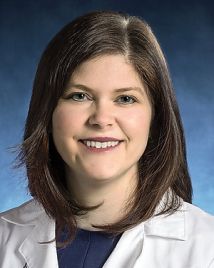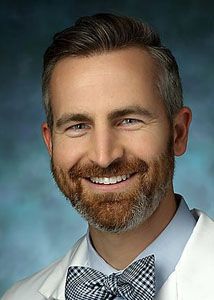We are proud of our Pediatric Critical Care Fellows and all that our Fellowship offers. Our Fellows are extraordinary physicians, autonomous, kind, family-centered, and dedicated to the care of our patients. They are scientists, medical educators, quality improvers, social justice champions, leaders, and all work to advance our profession. Finally, they are our trusted colleagues and friends. We offer this website for you to learn more about our training program.
What We Teach:
The Pediatric Critical Care experience at Johns Hopkins Hospital provides for a broad multidisciplinary exposure to the many facets of pediatric critical care medicine. Our intensive care units are the PCICU, a 12 bed unit dedicated to the care of medical and surgical cardiac patients and the PICU, a 28 bed unit where 1/2 admissions are medical patients and 1/2 admissions are surgical patients. The Johns Hopkins Children’s Medical and Surgical Center is the pediatric trauma and transplant center (heart, liver, kidney) in our region. We have the largest cardiac surgery ECMO program in the state of Maryland. We have an active critical care transport team that receives medical direction from the PICU. Fellows rotate in the pediatric ICU as the primary caretaker for patients in one of three capacities: As a daytime fellow, night fellow, or transport fellow. During transport shifts, the fellow provides medical direction and participates in ground and air transport of critically ill patients. There are no shifts worked for more than 14 hours.
Accredited by: Accreditation Council for Graduate Medical Education (3232321009)
Duration of Program: Thirty-six (36)months
Positions Available: 5
Application enrollment date(s) or deadline: We participate in the NRMP match. Applications are accepted through ERAS. Interviews are conducted between August and November.
Applicant Qualifications: All applicants must have completed a pediatric residency from an American Board of Pediatrics (ABP) approved training program or be ABP certified in pediatrics.
1. We currently participate in the NRMP fellowship match, all applications are accepted through ERAS only with the following supporting documentation:
- CV with photo
- Medical School Transcripts
- Medical School Performance Evaluation (in English)
- USMLE (1 & 2) or COMLEX Scores
- In-Service Exam Scores (Peds Anesthesia Applicants Only)
- Minimum of 3 Letters of Recommendation (include one letter from current training program)
- Copy of Visa (if applicable)
- Copy of ECFMG Certificate (only applicants who attended medical school outside of the US)
2. Upon application approval, an interview will be scheduled with the Program Director and Pediatric Critical Care Faculty.
3. If position is offered and accepted, the prospective fellow will go through the Credentialing Process.
4. If the prospective fellow successfully completes the credentialing process, he/she is then scheduled for an orientation.
Applications will be closely reviewed only after receipt of all required materials. The director of the fellowship initiates interview requests, and not all applicants are granted interviews. An on-site interview is required before consideration for acceptance. Intangibles such as evidence of scholarship, judgment, maturity, motivation, and interpersonal skills are all considered. Acceptance into a program is based on demonstrated academic qualification, interpersonal skills, and evidence of ability to function in a multidisciplinary setting.
By the completion of training, fellows will exhibit an enhanced degree of maturity in their patient management skills, increased awareness and effort as primary educators and the development of leadership skills such that they can manage the PCCM team of residents, fellows, faculty, nurses and respiratory therapists. They are expected to be technically excellent, competent to function as a pediatric intensivist and leaders among their peers. Their independent research careers will augment their intellectual thought processes and allow them to develop creative solutions to difficult problems.
By the end of the third year, the fellows are expected to have achieved competency in accordance with ACGME.
Curriculum
A 36-month pediatric critical care fellowship training program includes:
- 1 month anesthesia training in the pediatric operating room paired with a pediatric anesthesiologist and critical care facult
- 14-15 months of clinical pediatric critical care
- 18 months research experienc
- 3 months vacation
The PICU fellowship includes clinical training in the diagnosis and treatment of respiratory, neurologic and cardiac failure as well as critical care transport. Areas of focus include implementation and use of ECMO (extracorporeal membrane oxygenation), helicopter and ambulance pediatric transport, principles of ventilator management and renal replacement therapy.
Pediatric Critical Care Lectures Series consists of:
- PICU Journal Club and Evidence Base Medicine Lecture Series – Monthly
- PICU Cases of the Week Conference – every Wednesday
- Neurocritical Care Conference – every Thursday
- PICU Board Review – twice monthly
- PCICU Rounds – twice monthly
- Morbidity and Mortality Conference – Monthly
- "Codebusters" Cardiac Arrest Reviews – Monthly
- Research Conference – three times monthly
- PICU- Transport – EM Conference – once monthly
- Program Director Teaching hour – once monthly
- Health Policy, Equity, and Ethics Series – Quarterly
- Senior Fellow Series (Professionalism, Job Hunting, Negotiations, CV Prepartion) – every July
- Orientation for New Fellows – 3 weeks every July
All applicants must have completed a pediatric residency from an American Board of Pediatrics (ABP) approved training program or be ABP certified in pediatrics.
The following are minimum requirements for consideration for the fellowship interview:
- Transcript of medical school record, certified by the medical school
- Medical School Dean’s letter of recommendation
- Three letters of recommendation
- Completed application (either electronic or regular mail)
- Visa status information if pertinent. All J and H visa holders must complete a Hopkins post doctoral affairs reciprocity review.
- ECFMG certification if pertinent.
Applications will be reviewed only after receipt of all required materials. The Director of the Fellowship initiates interview requests, and not all applicants are granted interviews. An on-site interview is required before consideration for acceptance.
Contact Information
Pediatric Critical Care Fellowship Program
Department of Anesthesiology and Critical Care Medicine
Bloomberg Children’s Center
The Johns Hopkins Medical Institutions
1800 Orleans Street, Room 6349 D1
Baltimore, MD 21287
410-955-2393

Program Director
Amanda Levin, MD
[email protected]

Program Director
Dennis Delany, MD
[email protected]

Medical Training Coordinator
Sherrie Fornoff
[email protected]
(410) 955-2393